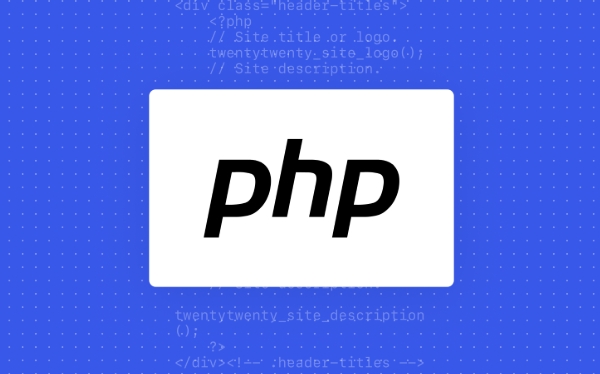To get a specific slice from a PHP array, use the built-in array_slice function. 1. array_slice allows extracting elements from the specified offset, with the syntax as array_slice(array $array, int $offset, int $length = null, bool $preserve_keys = false); 2. Parameters include the original array, the starting index, the length (optional), and whether to retain the key (optional); 3. For example, array_slice($numbers, 1, 3) returns [20, 30, 40]; 4. It can be used for paging data or subset extraction, such as obtaining the first three comments or the last two elements; 5. For the associative array, you need to set preserve_keys to true to retain the original key name; 6. Note that the negative offset is calculated from the end, and the length is omitted to be extracted to the end, and the number keys will be re-indexed by default.

If you want to get a specific slice (a portion) from a PHP array, the built-in array_slice function is your go-to tool. It's straightforward and flexible once you understand how it works.

How array_slice works
The basic idea of array_slice is that it lets you extract a part of an array, starting at a given offset, and taking a certain number of elements. Here's the general syntax:

array_slice(array $array, int $offset, int $length = null, bool $preserve_keys = false)
-
$array: The original array you're slicing. -
$offset: The starting point. If positive, it starts from that index. If negative, it starts from that many elements before the end. -
$length(optional): How many elements to return. If not provided, it goes until the end. -
$preserve_keys(optional): Whether to keep original keys (useful for associated arrays).
For example:
$numbers = [10, 20, 30, 40, 50]; $slice = array_slice($numbers, 1, 3); // returns [20, 30, 40]
This is especially handy when dealing with paginated data or when you just need a subset of a larger dataset.

Common use cases and examples
Let's say you have an array of user comments and you want to show only the first three:
$comments = ['Great post!', 'Love this.', 'Not sure about that.', 'Thanks for sharing.']; $topComments = array_slice($comments, 0, 3);
Or if you want the last two items without knowing the exact length:
$data = [1, 2, 3, 4, 5]; $lastTwo = array_slice($data, -2); // returns [4, 5]
You can also use it to skip the first item and get the rest:
$values ??= ['first', 'second', 'third', 'fourth']; $rest = array_slice($values, 1); // ['second', 'third', 'fourth']
These are typical situations where slicing helps clean up your code and avoid manual loops.
Preserving keys in associated arrays
By default, array_slice reindexes numeric keys. But if you're working with associated arrays and want to keep the original keys, set the fourth parameter to true .
Example:
$userData = [
'name' => 'Alice',
'age' => 30,
'email' => 'alice@example.com',
'active' => true
];
$info = array_slice($userData, 1, 2, true);
// Returns: ['age' => 30, 'email' => 'alice@example.com'] Without the true flag, the keys would be lost and replaced with numeric indexes. So if key names matter — like in config arrays or user data — remember to preserve them.
A few gotchas to watch out for
- Negative offsets start from the end, but if the number exceeds the array length, it wraps around incorrectly. For example,
array_slice($arr, -10, 2)on a 3-element array will still try to pull something, even if it seems off. - Omitting the length means it'll take everything from the offset to the end — which is fine unless you intended to limit results.
- Reindexing behavior may break logic expecting consistent numeric keys. Always check if preserved keys is needed.
In short, array_slice is powerful, but pay attention to edge cases and test with different inputs to make sure it behaves as expected.
That's basically all you need to know to slice arrays confidently in PHP.
The above is the detailed content of how to extract a slice from a php array. For more information, please follow other related articles on the PHP Chinese website!

Hot AI Tools

Undress AI Tool
Undress images for free

Undresser.AI Undress
AI-powered app for creating realistic nude photos

AI Clothes Remover
Online AI tool for removing clothes from photos.

Clothoff.io
AI clothes remover

Video Face Swap
Swap faces in any video effortlessly with our completely free AI face swap tool!

Hot Article

Hot Tools

Notepad++7.3.1
Easy-to-use and free code editor

SublimeText3 Chinese version
Chinese version, very easy to use

Zend Studio 13.0.1
Powerful PHP integrated development environment

Dreamweaver CS6
Visual web development tools

SublimeText3 Mac version
God-level code editing software (SublimeText3)
 PHP Variable Scope Explained
Jul 17, 2025 am 04:16 AM
PHP Variable Scope Explained
Jul 17, 2025 am 04:16 AM
Common problems and solutions for PHP variable scope include: 1. The global variable cannot be accessed within the function, and it needs to be passed in using the global keyword or parameter; 2. The static variable is declared with static, and it is only initialized once and the value is maintained between multiple calls; 3. Hyperglobal variables such as $_GET and $_POST can be used directly in any scope, but you need to pay attention to safe filtering; 4. Anonymous functions need to introduce parent scope variables through the use keyword, and when modifying external variables, you need to pass a reference. Mastering these rules can help avoid errors and improve code stability.
 How to handle File Uploads securely in PHP?
Jul 08, 2025 am 02:37 AM
How to handle File Uploads securely in PHP?
Jul 08, 2025 am 02:37 AM
To safely handle PHP file uploads, you need to verify the source and type, control the file name and path, set server restrictions, and process media files twice. 1. Verify the upload source to prevent CSRF through token and detect the real MIME type through finfo_file using whitelist control; 2. Rename the file to a random string and determine the extension to store it in a non-Web directory according to the detection type; 3. PHP configuration limits the upload size and temporary directory Nginx/Apache prohibits access to the upload directory; 4. The GD library resaves the pictures to clear potential malicious data.
 Commenting Out Code in PHP
Jul 18, 2025 am 04:57 AM
Commenting Out Code in PHP
Jul 18, 2025 am 04:57 AM
There are three common methods for PHP comment code: 1. Use // or # to block one line of code, and it is recommended to use //; 2. Use /.../ to wrap code blocks with multiple lines, which cannot be nested but can be crossed; 3. Combination skills comments such as using /if(){}/ to control logic blocks, or to improve efficiency with editor shortcut keys, you should pay attention to closing symbols and avoid nesting when using them.
 How Do Generators Work in PHP?
Jul 11, 2025 am 03:12 AM
How Do Generators Work in PHP?
Jul 11, 2025 am 03:12 AM
AgeneratorinPHPisamemory-efficientwaytoiterateoverlargedatasetsbyyieldingvaluesoneatatimeinsteadofreturningthemallatonce.1.Generatorsusetheyieldkeywordtoproducevaluesondemand,reducingmemoryusage.2.Theyareusefulforhandlingbigloops,readinglargefiles,or
 Tips for Writing PHP Comments
Jul 18, 2025 am 04:51 AM
Tips for Writing PHP Comments
Jul 18, 2025 am 04:51 AM
The key to writing PHP comments is to clarify the purpose and specifications. Comments should explain "why" rather than "what was done", avoiding redundancy or too simplicity. 1. Use a unified format, such as docblock (/*/) for class and method descriptions to improve readability and tool compatibility; 2. Emphasize the reasons behind the logic, such as why JS jumps need to be output manually; 3. Add an overview description before complex code, describe the process in steps, and help understand the overall idea; 4. Use TODO and FIXME rationally to mark to-do items and problems to facilitate subsequent tracking and collaboration. Good annotations can reduce communication costs and improve code maintenance efficiency.
 Quick PHP Installation Tutorial
Jul 18, 2025 am 04:52 AM
Quick PHP Installation Tutorial
Jul 18, 2025 am 04:52 AM
ToinstallPHPquickly,useXAMPPonWindowsorHomebrewonmacOS.1.OnWindows,downloadandinstallXAMPP,selectcomponents,startApache,andplacefilesinhtdocs.2.Alternatively,manuallyinstallPHPfromphp.netandsetupaserverlikeApache.3.OnmacOS,installHomebrew,thenrun'bre
 How to access a character in a string by index in PHP
Jul 12, 2025 am 03:15 AM
How to access a character in a string by index in PHP
Jul 12, 2025 am 03:15 AM
In PHP, you can use square brackets or curly braces to obtain string specific index characters, but square brackets are recommended; the index starts from 0, and the access outside the range returns a null value and cannot be assigned a value; mb_substr is required to handle multi-byte characters. For example: $str="hello";echo$str[0]; output h; and Chinese characters such as mb_substr($str,1,1) need to obtain the correct result; in actual applications, the length of the string should be checked before looping, dynamic strings need to be verified for validity, and multilingual projects recommend using multi-byte security functions uniformly.
 Learning PHP: A Beginner's Guide
Jul 18, 2025 am 04:54 AM
Learning PHP: A Beginner's Guide
Jul 18, 2025 am 04:54 AM
TolearnPHPeffectively,startbysettingupalocalserverenvironmentusingtoolslikeXAMPPandacodeeditorlikeVSCode.1)InstallXAMPPforApache,MySQL,andPHP.2)Useacodeeditorforsyntaxsupport.3)TestyoursetupwithasimplePHPfile.Next,learnPHPbasicsincludingvariables,ech






